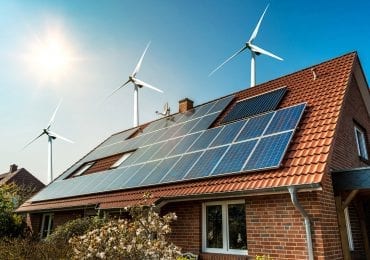Tax Deductible Energy-Efficient Rental Property Upgrades
As a rental property owner, you clearly want to take advantage of as many tax breaks as possible. After all, by claiming all of the tax breaks for which you qualify, you can significantly increase your profit margin. Some of the tax breaks that you might be interested in taking are those that are related to increasing the energy-efficiency of your property. Knowing whether or not you can take advantage of these tax breaks and how to utilize them to your fullest is an important part of real estate ownership.
Does Your Rental Property Qualify for Federal Tax Credits?
The Federal government offers a number or energy credits to homeowners, such as those available under the renewed Residential Energy Property Credit. To qualify for this credit, however, the energy upgrades must have been completed on your primary residence. Therefore, the only way you can qualify for these credits is if you are living in the same property, such as is the case of an owner occupying a multifamily building. Several states also offer tax credits for energy-efficient upgrades, but these guidelines also limit these credits to primary residences or secondary homes that are occupied by the owner.
How Can a Property Owner Get Credit for Energy Improvements?
While you may not qualify specifically for energy credits on your Federal or State tax return, you can still claim these improvements on your taxes. To do this, you simply claim your energy upgrades in the same way as any other property improvements.
It is important to remember that there is a difference between home repairs and home improvements when making a tax claim. While repairs can be written off immediately in the same was any other expenses associated with your property, improvements that actually add value to your property or extend its live must be depreciated over several years. Repairs would be something like replacing a broken window, while replacing all of the windows in order to improve energy efficiency would be an improvement.
What is Depreciation?
Depreciation is the loss of property value over time due to normal wear and tear. When you make improvements to your rental property, you can deduct a portion of that lost value over a set number of years. For items such as new carpeting or appliances, for example, the depreciation time period is typically more than five years. Once you either recover the cost of your improvement investment or stop renting the property, you will have to stop depreciating.
While depreciation is a valuable tax break to implement on your tax return, completing the calculations correctly can be tricky. In addition, there are many exceptions to consider when taking advantage of the depreciation option.
To ensure you are taking full advantage of all of the tax breaks that are available to you, it is important to work closely with a professional who is up-to-date with the latest changes in local and Federal tax code. At Ankor, we make it our top priority to help you get the greatest return possible on your property investment. Contact us today to learn more.

